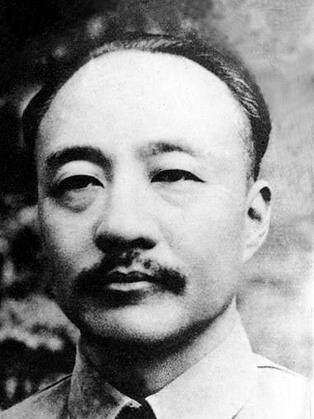In order to resist Japan, the elder of the party and the state, seven sons, five of them were sent to the anti-Japanese front, he was General Li Liejun, who could write and fight.
Li Liejun, a native of Luoxi Pingyuan Village, Wuning County, Jiujiang City, Jiangxi Province, his father participated in the Taiping Heavenly Kingdom Taiping Army, and after the defeat of the soldiers, he returned home to farm, although Li Liejun's family was not very wealthy, but li Liejun's education was not slow at all, and Li Liejun liked to make friends since he was a child, and he was good at fencing and calligraphy, a bit like the style of jianghu heroes.
After that, Li Liejun studied in the artillery department of the Japanese Army Non-Commissioned Officer School, and was still a classmate of Huang Xing at that time. Under the introduction of Huang Xing, Li Liejun met Sun Yat-sen and directly heard Sun Yat-sen's long speech on overthrowing the Manchu Qing government and establishing a democratic republic, which made Li Liejun's idea of being submissive to the revolution spontaneously.

In 1907, Through Zhang Duan and Wang Kan, Li Liejun was introduced to join the League, but after returning to China, he worked as a pipe belt in Jiangxi, and when he had time to publicize revolutionary matters in the army, he was almost arrested later, but fortunately someone reported it in advance. Li Liejun fled to Yunnan Tonwutang as an instructor and military personnel.
In the Autumn of 1911, Li Liejun was ordered to go north to prepare for the Wuchang Uprising, and when assigning work, Li Liejun was appointed as the commander of the heavy artillery unit of the rebel army, because in Japan Li Liejun studied artillery, under the leadership of the commander-in-chief Jiang Yiwu and the chief of staff of Sun Wu, after the rebel army controlled the three towns of Wuhan, the government was established, Li Yuanhong was elected as the governor, changed the name of the country to the Republic of China, and called on the people of the provinces to revolt in response to the Xinhai Revolution.
Later, Yuan Shikai became the president of the Republic of China, but unfortunately, Yuan Shikai later became emperor, was opposed by snobbery from all sides, and finally died after 63 days, and Yuan Shikai died once the land of China was chaotic again.
In 1917, Feng Guozhang, Duan Qirui and other warlords controlled the Beiyang regime, and from then on began a warlord melee, direct lineage, Anhui clan, Feng Iti was played, and the presidency was also frequently changed.
At this time, Sun Yat-sen once again went out to the mountains to establish the Republic of China in Guangzhou, he served as the Grand Marshal of the Navy and Army, at this time Li Liejun was appointed as the chief of staff of the Grand Marshal's Office, after Chen Jiongming rebelled in Guangzhou, Sun Yat-sen took refuge on the "Yongfeng" ship, at this time Li Liejun returned to the army to save Sun Yat-sen, but was blocked on the road to the Guangdong-Hunan border.
In January 1923, the Yunnan-Guizhou coalition defeated Chen Jiongming. When the Grand Marshal's Office was rebuilt, Li Liejun remained the chief of staff. However, after that, he never had any unsurpassed troops, and only assisted Sun Yat-sen in military planning and staff command.
Li Liejun attended the first national congress of the people, and at that time he was an executive committee member, and when preparing for the "Whampoa Military Academy," he also vigorously recommended Chiang Kai-shek as the president of the school, and said: "The principal seat is none other than Chiang Kai-shek." In particular, when Sun Yat-sen was not in Guangzhou, Li Liejun once served as a grand marshal. It can be seen that in the Republic of China, Li Liejun is a figure of the elder level.
On April 18, 1927, Chiang Kai-shek established the Republic of China in Nanjing and appointed Li Liejun as a member of the National Standing Committee.
In 1931, when the "9.18" incident occurred and the national crisis was serious, Li Liejun repeatedly called Chiang Kai-shek to advocate a war of resistance against Japan, demanding that politics be reformed and freedom of speech be respected in order to maintain the will of the people and unanimously insult the people. In order to show his determination to resist Japan, Li Liejun's seven sons sent five sons to join the army to resist Japan. At that time, the media widely reported on the matter, calling it "the elder of the party-state and the fifth son congrong".
In 1937, the "July Seventh" War of Resistance broke out, and Li Liejun, after a long illness, helped him to go to Beijing and went to the country to suffer. Later, due to hypertension, he returned to Wuning. Later, he moved to Chongqing, the capital of The Companion Capital, and has been recuperating from illness.
In 1946, Li Liejun died of hypertensive myocardial infarction in Chongqing at the age of 64. Chiang Kai-shek ordered a state funeral.